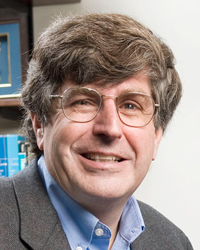Synthesis on demand: On your desktop
Dr. Klavs F. Jensen
Warren K Lewis Professor and Department Head
Department of Chemical Engineering
Massachusetts Institute of Technology (MIT), USA
Schlumberger Lecture
3:30pm - October 3, 2013
(ETLC) 1-001
Host: Dr. Neda Nazemifard
Abstract:
Miniaturized continuous flow systems for chemical synthesis and analysis have evolved significantly over the past decade from their initial roots in micromachining to flexible configurable systems used in organic chemistry, 'flow chemistry', and in specialized systems for energy conversion and catalysis characterization. These flow systems combine mini or microfluidic channels, chemical-synthesis-on-a chip, and continuous separation based on surface tension effects to enable multiple synthesis and separation steps. Synthesis applications are enhanced by automated optimization as well as mechanistic and kinetic information gained from integrating reaction components with sensors, actuators, and automated fluid handling. Moreover, flow systems allow experiments on well-defined samples at conditions not easily accessed by conventional means, such as reaction at high pressure and temperatures. The characteristics and scaling of flow systems are demonstrated with cases studies drawn from multistep chemical synthesis relevant to fine chemicals and pharmaceuticals, synthesis of nano-materials, and characterization of heterogeneous catalysts. Emphasis is placed on applications that are enabled by small flow systems and are difficult to perform by conventional techniques. Finally, challenges in applications of the technology and opportunities for new insight gained from use of microsystems are discussed.
